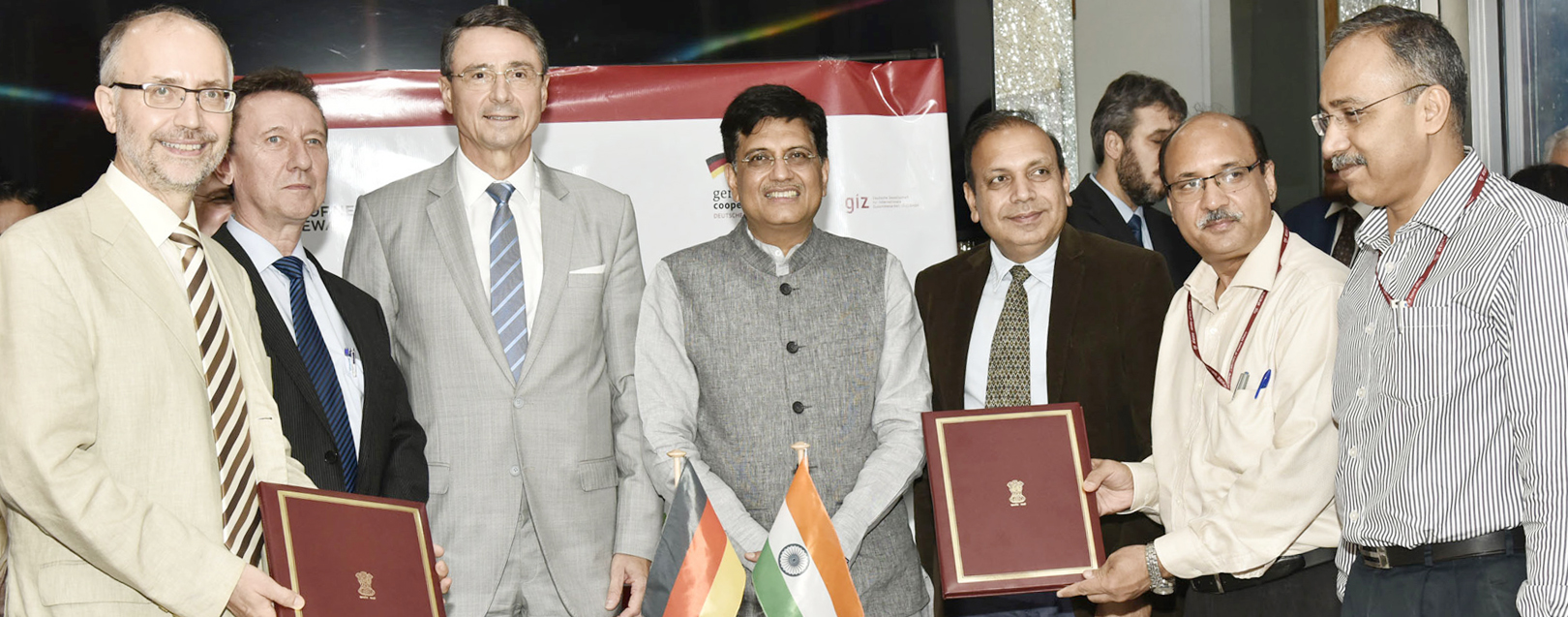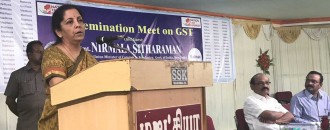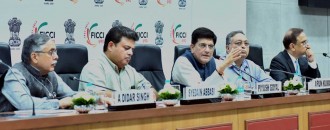
India enters into a pact with Germany on green energy
The Dollar Business Bureau
India has signed an agreement with Germany on technical cooperation to enhance parameters for renewable energies’ grid integration, said Power Minister Piyush Goyal on Monday.
The pact was signed by Ministry of New and Renewable Energy (MNRE) of India and Deutsche Gesellschaft für Internationale Zusammenarbeit (GIZ) GmbH on behalf of Germany, under the “Indo-German Energy Programme - Green Energy Corridors (IGEN-GEC)” in New Delhi.
This association between MNRE and GIZ will result in better market mechanisms and rules and also help in training manpower in India to ensure stability of grid and to enhance integration of renewable energies in the country, said Goyal.
“It will lead to a safer grid, a more secured grid, a grid which can also take care of cyber challenges”, he said at the signing of the pact.
The Minister further stated that Germany is a very dependable partner of India and has been providing support to achieve India’s sustainable development goal through bilateral collaboration for around 60 years now.
“India and Germany share a very active and dynamic engagement furthering the relations in variety of areas. Within this larger broader context of the Indo-German relationship, clean energy has a very important role to play,” Goyal said.
MNRE and GIZ will work to improve market mechanisms and rules for renewable energies integration, advancing institutional and technical conditions in identified target regions, states and on a country level, to add human capabilities for handling systemic integration of renewable energy in an effective and efficient manner.
Germany’s Ambassador to India, Martin Ney, said, “When in July 2012, Power Grid Corporation of India submitted a comprehensive and well elaborated transmission plan for envisaged renewable capacity to MNRE, it paved the way for India’s ambitious goals to transform its power system by significantly increasing the share of renewable energies in the energy mix.”
India and Germany had confirmed their collaboration in the field of green energy, based on the consultations held between the two countries in Berlin in April 2013.
Later, it was decided that Germany will give up to 1 billion euros as concessional loans through its government-run development bank - KfW and around 10 million euros under the technical support in market design, forecasting, balancing, demand side energy efficiency and network management, carried out by the GIZ.
In 2015 and 2016, these have been further augmented by up to 400 million euros by way of concessional loans for the development of transmission infrastructure and by up to 7 million euros for the purpose of training in photovoltaic (PV) solar rooftop segment and for energy efficiency in residential structures under the technical assistance via GIZ.
Presently, GIZ has more than 330 employees in India, out of which 85% are national employees. For over six decades, the GIZ has been working in cooperation with partners in the country for sustainable ecological, economic and social development.





